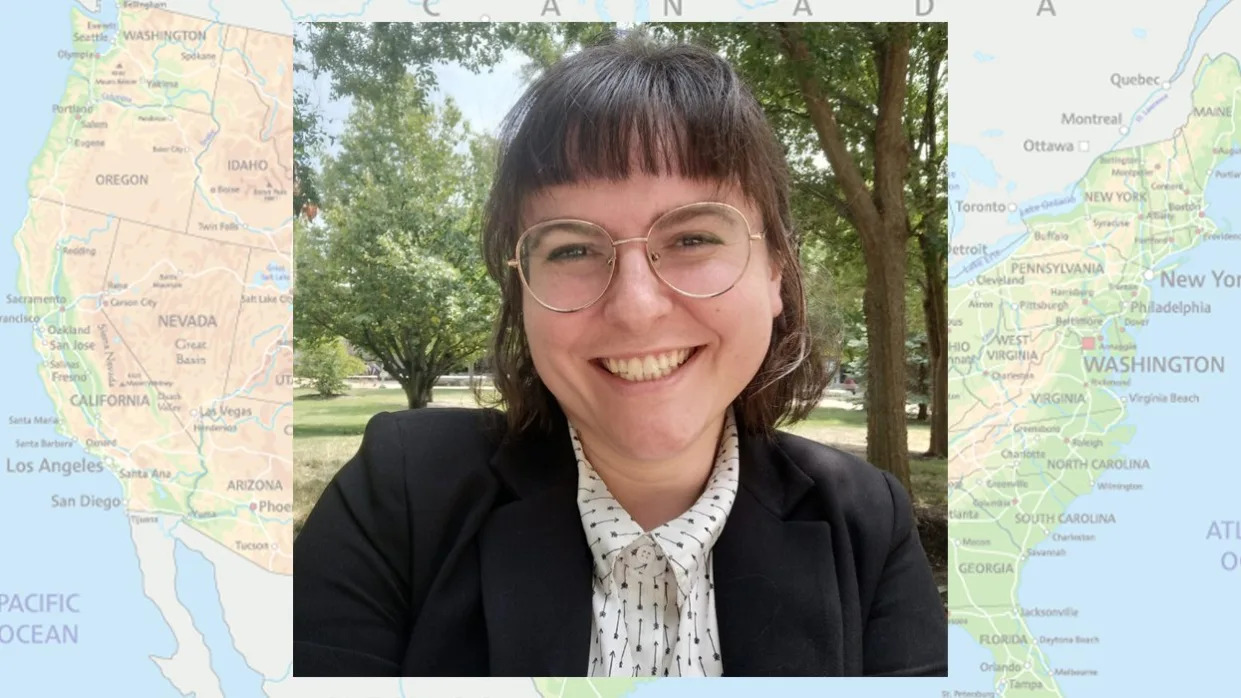Ryan Adamczeski
Fri, February 2, 2024

rebecca blankenship kentucky transgender politician
Kentucky legislators passed some of the nation’s worst anti-LGBTQ+ laws in 2023.
Alongside bans on gender-affirming care for minors and bans on teaching LGBTQ+ topics in public schools, the state enacted a law that also requires school districts to “at a minimum” prohibit trans students from using restrooms that align with their gender identity, and mandates that schools staff out LGBTQ+ students to their guardians.
But something else significant happened in Kentucky in 2023: The state swore in its first-ever transgender elected official. Even more significant, she was sworn in to her local school board.
Rebecca Blankenship has been a member of the Berea Independent School District's board of education for one year now and is still the only out transgender person who's ever been elected to any office in Kentucky. Moreover, during her time in the position, the state legislature has “forced us to implement policies that turn our stomachs,” she says.
Keep up with the latest in LGBTQ+ news and politics. Sign up for The Advocate's email newsletter.
While this may seem like a cause for despair, Blankenship isn’t losing focus. Despite the anti-LGBTQ+ legislation being pumped out by state lawmakers, there are pro-LGBTQ+ measures she believes are capable of passing in the state. More importantly, there is no law the Kentucky Legislature can pass that bans basic kindness.
“Our Berea board would have loved to stand up for LGBT kids. Our state legislature, though, which is completely power mad, completely out of control, wants to come into small communities and dictate how we are going to treat each other,” Blankenship tells The Advocate. “They have forced us to implement policies that turn our stomachs, but what they cannot do is force teachers, and school staff, and bus drivers, and everybody who does their job because of the kids, to start treating those kids with cruelty or disrespect.”
“The legislature cannot ban their kindness,” she adds.
While a spate of anti-LGBTQ+ laws has gone through in the state – the majority of which target transgender minors – there’s one policy Blankenship is pushing for that could protect trans kids, and its approval is showing “early promise.” The initiative? Ban conversion therapy within the state of Kentucky. The strategy? Highlight anti-transgender hypocrisy.
Three local governments in the state have passed ordinances banning the draconian practice, but none have enforced them, Blankenship claims. This has helped “increase the pressure on the state legislature [to say] that they need to take action, so that they can't just leave this to somebody else.”
“Another thing that has helped us increase interest in doing this bill is that the legislature banned gender-affirming care for minors last year,” Blankenship notes. “They spent the whole year talking about how they wanted to ban unethical experimental medical treatments for LGBT youth. Well, here's one. … I think that we're really turning some heads with the idea that we need to be consistent.”
The Kentucky Legislature’s attacks on LGBTQ+ people have significant consequences, but they have also fostered a greater sense of community among queer people in the state. Blankenship says that lately more and more people have been inspired to get involved in local politics and even to run for office – particularly transgender people. In fact, the state may soon have its second transgender elected official and first trans representative if Emma Curtis wins her bid for the 93rd House District in Lexington.
Those are two of the biggest steps Blankenship believes people can take to support the trans community in a time where they’re under attack: run for office, and donate to those running for office who are LGBTQ+, or at least supportive of queer people. The third step is to “push their local party establishments and democratic powerhouses to do the same things: to endorse these candidates, to put money behind these candidates, to put effort behind these candidates.”
“The City Council and the school board are more important than the president,” Blankenship says. “Our local governments affect our lives so, so profoundly, and LGBT people have the same basic needs as everybody else. We pay rent, we drive on roads, we send our kids to school. … If we can all uplift each other, we can achieve a new kind of power. We can achieve a new kind of community and a new kind of politics that works for everybody.”
Enfranchising such candidates won’t just change policy nationally, she explains, but it will also “change hearts and minds locally,” as it “demonstrates that we have so much more in common with regular people, working people, than we have differences.”
“It's not regular people who want to hurt us, it's national organizations that try to co-opt religion to build power through hate,” Blankenship continues. “The fact that Kentucky's first openly trans elected official didn’t come from a city, but from a little bitty mountain town, proves that the stereotype of queerphobic rural conservatives is just not the reality.”
She adds: “My election showed that this is something that can happen. … If a trans person can win here in Appalachian State hills, they can win anywhere.”
No comments:
Post a Comment